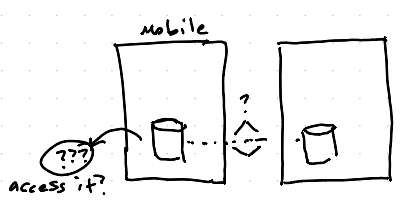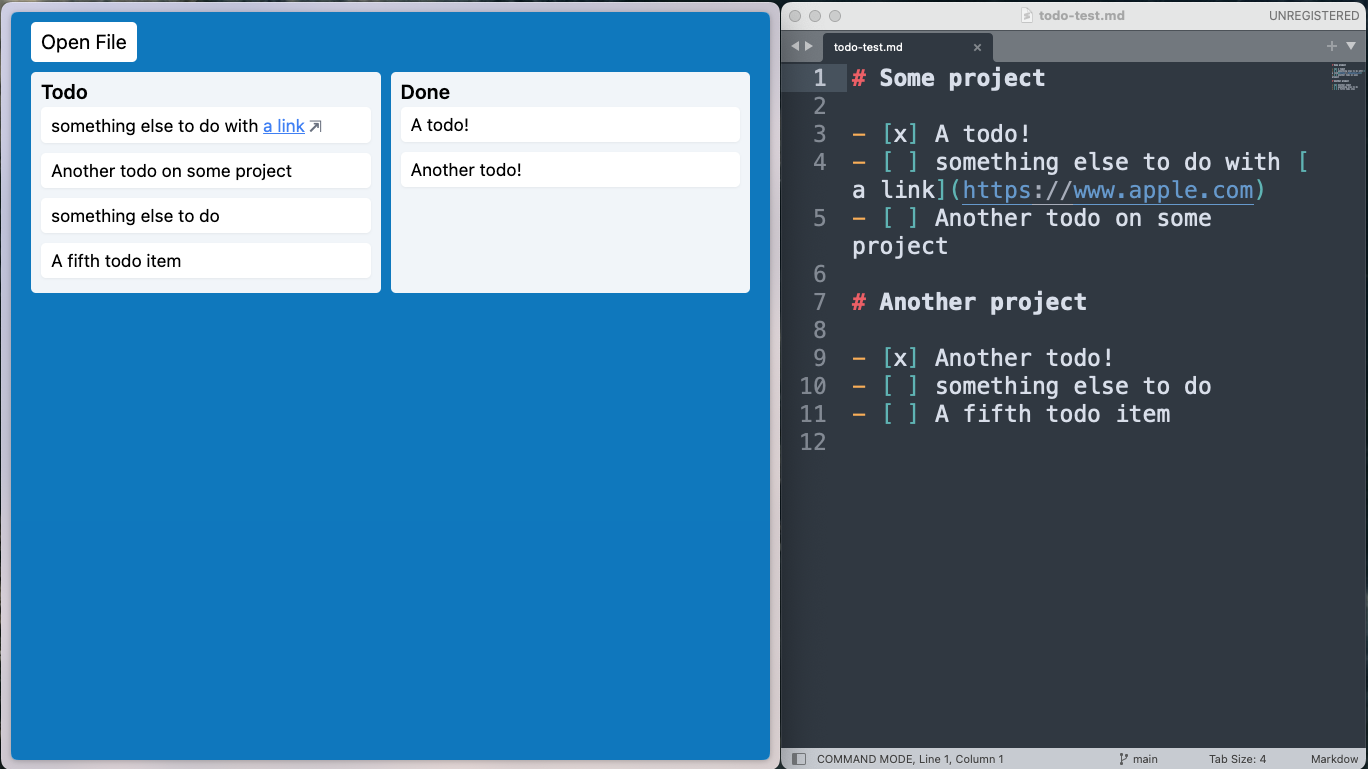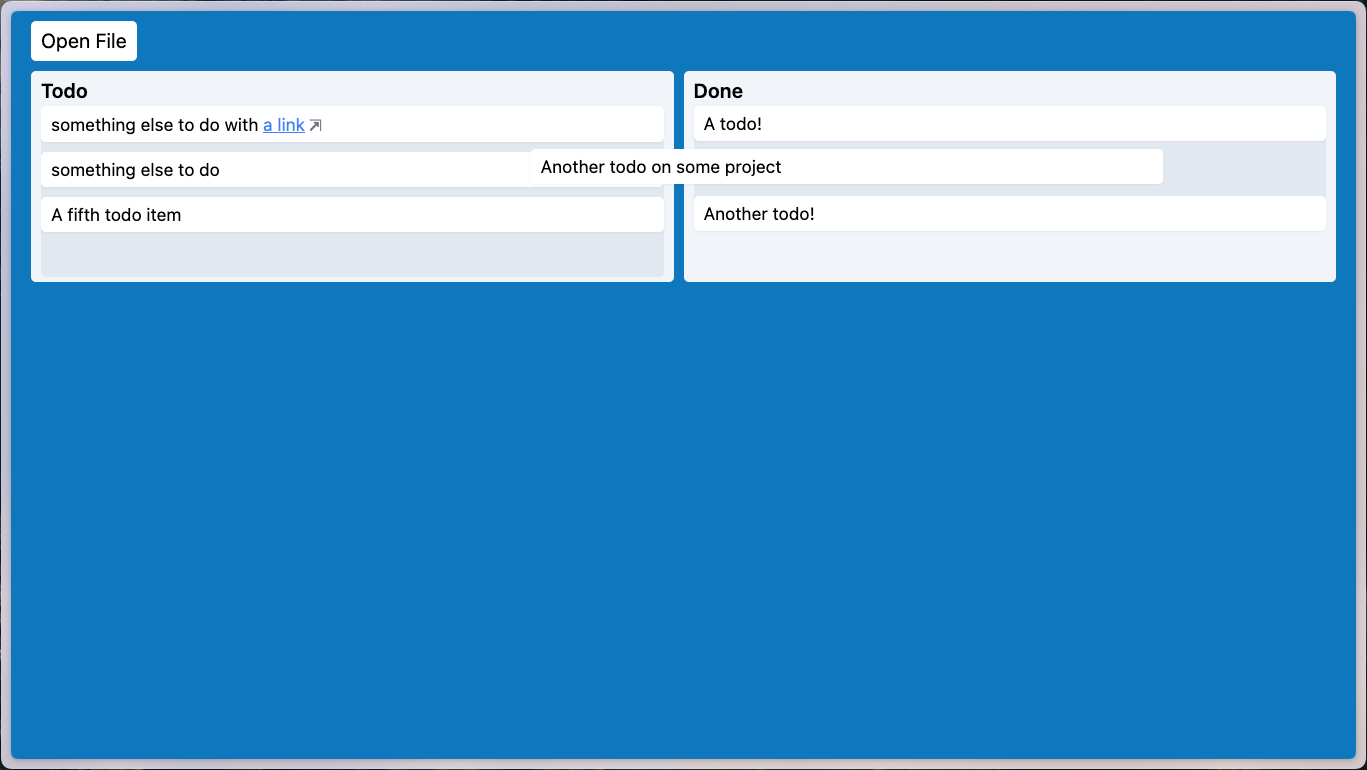The Last Mile of Local-First
- Hi I'm Jess Martin
- Future of computing - app interoperability
- Local-first software can enable this
- a few problems yet to solve...
- A Local-first Scorecard → Just completed this landscape so I have a good sense of the progress
- Six years the article... we have solved many tech challenges
- Let's take a look at our progress on the Scorecard:
- No spinners: ✓
- Software has gotten faster!
- Multi-device is common: ✓
- Sync engines are amazing
- Network optional: -
- Still a lot of work to do to make P2P fully reliable and easy, but it's getting better
- Seamless collaboration: ✓
- Lots of hard work on CRDTs and other methods of reconciliation
- Security and privacy by default: -
- Some good talks on this!
- You retain ownership & control: ?
- The Long Now: ?
- No spinners: ✓
- one solution to the User-owned data and Long Now: file formats
- How might we solve these things with file formats?
- The last five years of advances have largely been solved by frameworks and libraries and a few intrepid software companies
- Pioneering, hard work!
- Here's an architecture diagram of what this looks like today:
- The "Last Mile" of local-first will have to be solved by application developers.
- <show image of telephone lines, tell story of the internet>
- We are getting the data all the way to the device, but not able to access it
- But just because data is on the device doesn't mean users can access it
- Especially if the data stays trapped in proprietary formats
Challenge for local-first app developers: levels of support
- This talk will be a challenge to app developers. I'm going to provide a set of levels to grade yourself on the support you provide to your users.
LEVEL 1: Export to flat file formats
- Just choose open formats
- markdown, CSV, etc → your app domain
- So many available - and you don't have to choose just one!
- markdown, CSV, etc → your app domain
- Sometimes, you have to invent one...
- Obsidian is well known for file > app
- Introduced a canvas feature - there's no file format
- JSON Canvas
- Introduced a canvas feature - there's no file format
- At the time, Orion Reed and I were doing canvas work
- DXOS - TLDraw - Doing export to file work, interop, etc
- Tried JSON Canvas - found it was too limiting to express the TLDraw, and other, infinite canvases
- Local-first Conf last year we wrote the version of a new spec & minimal implementation to handle many canvases
- Will come back to that story...
- Obsidian is well known for file > app
LEVEL 2: Continuous export
- Think of this as a continuous projection of the app's data to an external source
- Every write in the app causes a re-render of the projection
- Doesn't handle reads - just overwrites
- We already mentioned Obsidian
- Kanban.md demo
- Kanban.md demo
- Doesn't have to be files!
- Linear → Google Sheets DEMO
- Build charts, run calculations, etc
- Linear → Google Sheets DEMO
LEVEL 3: Bi-directional sync
- Much harder!
- Obsidian implements this via the file system
- Kanban.md can write, too!
- So satisfying to drag a card over!
- So satisfying to drag a card over!
- Kanban.md can write, too!
- But now we are back in the land of open research problems
- Substrate matters...
- File system? CLI agent? Desktop app?
- Particularly challenging for real-time collaboration, as changes aren't automatically available as "diffs" or "patches"
- And merging of offline edits
- Substrate matters...
- But amazing things are possible if you do the work...
- Show a Obsidian Canvas ⟷ TLDraw demo powered by OCIF
- Collaborate across applications!
- Show a Obsidian Canvas ⟷ TLDraw demo powered by OCIF
- What is powering this?
- So, resuming my story... we kept working on the infinite canvas file format...
- The Open Canvas Working Group met 25 times over the past year
- Git issues
- Input from 15 canvases
- Spec versions
- 3 implementations
- New collaborators
- Happy to announce today the OCIF 1.0 Candidate Recommendation
- We are following the W3C process
- Candidate Recommendation means:
- We feel the spec captures the majority of cases and is relatively complete and stable
- And now it's ready to be implemented
- Two app that have implemented already and we have a handful of demos
- But the spec will still change as we seek to incorporate feedback from implementers
- Candidate Recommendation means:
- Feel really good about the spec
- If you are working on a canvas, consider implementing import/export
- You can implement in our "tools" package which will give users access
- Through the CLI tool
- And through the exporter website
- You can implement in our "tools" package which will give users access
- We are following the W3C process
LEVEL 4: An added benefit/perk (?) AI understands open formats
- A few quick demos of AI working with OCIF
- AI explaining a canvas
- AI writing a canvas based on a prompt, etc...
- Use the local TLDraw instance & the OCIF file watcher...
To wrap up...
- App developers will have take us the last mile..
- Reiterate Last mile story - show the phone lines again
- Show score card again
- Encourage us to give users control and solve for the Long Now!
The Last Mile of Local-first
Interactive graph
On this page
The Last Mile of Local-First
Challenge for local-first app developers: levels of support
LEVEL 1: Export to flat file formats
LEVEL 2: Continuous export
LEVEL 3: Bi-directional sync
LEVEL 4: An added benefit/perk (?) AI understands open formats
To wrap up...



